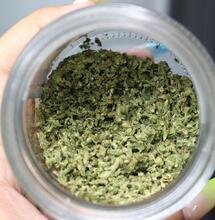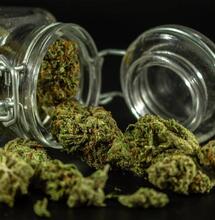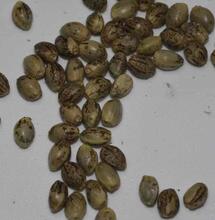Fentanyl-Laced Cannabis is ‘Misinformation’

All kinds of stories have been told and shared online about fentanyl-laced cannabis in recent years. It’s difficult to tell what is true and what is not, as oftentimes this information comes from authorities. New York’s Office of Cannabis Management (OCM) has issued a fact sheet to address the issue, claiming that there have been zero verified incidents related to cannabis contaminated with fentanyl.
Over the past few years, several overdose cases were supposedly “linked” with fentanyl-laced weed. In most of those cases (if not all of them), it has been difficult to prove whether fentanyl-contaminated weed was really the reason for the incident.
It’s true that fentanyl — a potent synthetic opioid used as an anesthetic — is often mixed in other drugs that are illegally sold on the streets. But cannabis is unlikely to be one of them.
Finally, someone is doing something to clear the air and subdue the misinformation.
It’s a ‘False Narrative’ that Fentanyl is Found in Weed
Cannabis regulators in New York went forward with debunking what they claim is a “false” narrative that marijuana is commonly contaminated with the dangerous opioid. The “misconception” continues to gain traction despite poor evidence, the regulator say.
The state Office of Cannabis Management (OCM) put out a factsheet on the subject, where it states that fentanyl is found in drugs such as MDMA and heroin. However, it deems the anecdotal claims about fentanyl in weed as far-fetched.
The two-page document issued from the OCM office is titled “Cannabis and Fentanyl: Facts and Unknowns.” Its purpose is to “address misconceptions about cannabis being mixed with fentanyl.”
“The goal of this fact sheet is to provide evidence where it is available, to share information about what is currently known and unknown, and to provide safety tips to help alleviate some of these misconceptions, often spread through misinformed media coverage and anecdotal reporting,” it continues.
The factsheet highlights that “anecdotal reports of fentanyl ‘contaminated’ cannabis continue to be found to be false, as of the date of this publication.”
The two-pager further highlights that, “At this time, there have been zero verified incidents of fentanyl ‘contamination’ in cannabis.”
The office does not aim to minimize the dangers of fentanyl, which is regularly traced in illegally sold street drugs and contributing to an ever-increasing number of overdose deaths. Fentanyl is found in cocaine, heroine, pills and MDMA, and its presence might be possible in synthetics such as Spice/K2. The New York regulator believes that it’s important to provide the public with evidence-based info about weed as the state transitions to the legal market.
With its latest fact sheet, the OCM is also reminding cannabis users across the state that making purchases from legal shops reduces the chances of contamination in general. That legal cannabis is the safest option for consumption now that the Empire State has launched recreational cannabis retail. On the other hand, it’s important to note that a lot of New Yorkers simply continued to supply weed via illicit sources as the state was very slow to open the first licensed shops.
“Cannabis products made available in the unregulated market may contain unknown or undisclosed contaminants and have inaccurate labeling,” the fact sheet warns. “Reliable testing protocols for the presence of fentanyl on cannabis flower remain unknown,” it adds.
The regulators further acknowledged that many people who reach out to opioids are “stigmatized in health care settings,” which can often cause additional harm as it’s something that creates “mistrust.” Oftentimes, users fail to admit opioid use as they fear “inequitable care or punitive interventions by law enforcement.”
Check out the full content of the fact sheet on the link here.
Also read on Soft Secrets:
- Fentanyl-Laced Weed: Is It an Urban Myth?


















